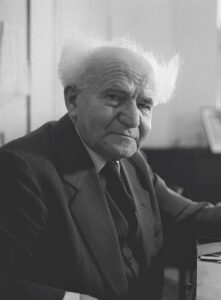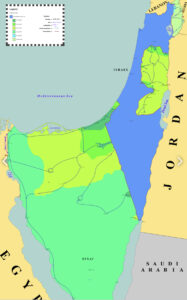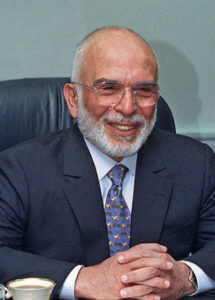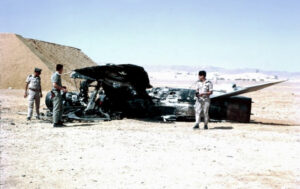
 Since the earliest beginnings of Israel, the Arab community has been protesting its existence and trying to remove it from the face of the Earth. I don’t particularly understand what their problem uis. Given the tiny size of Israel compared to the vastness of the Arab nations, why is it so hard to allow them to live in peace? It is, of course a Holy War situation that is unlikely to go away for as long as time continues.
Since the earliest beginnings of Israel, the Arab community has been protesting its existence and trying to remove it from the face of the Earth. I don’t particularly understand what their problem uis. Given the tiny size of Israel compared to the vastness of the Arab nations, why is it so hard to allow them to live in peace? It is, of course a Holy War situation that is unlikely to go away for as long as time continues.
Israel had been a nation way, way back, but when they were taken into captivity, they were scattered to many nations. Once they were freed, they traveled to Israel (I think most people know the Exodus story). Of course, their existence was fought over again and again, finally leading up to the Holocaust. When World War II ended, many of the Jewish people again moved to and populated the Israeli land, but it wasn’t until May 14, 1948, that David Ben-Gurion, the head of the Jewish Agency, proclaimed the establishment of the State of Israel. United States President Harry S Truman recognized the new nation on the same day. Since that time, there have been multiple wars and continuing conflicts that have threatened the existence of the Israeli state.
One such war was the Six-Day War, also called June War or Third Arab-Israeli War or Naksah. It was a short-lived war that took place from June 5, 1967 to June 10, 1967. It was the third of the Arab-Israeli wars. The first took place almost immediately after they were declared a state. The Israeli people have learned to fight for survival all their lives, vowing never to allow another Holocaust to be carried out. Israel’s decisive victory in the Six-Day War included the capture of the Sinai Peninsula, Gaza Strip, West Bank, Old City of Jerusalem, and Golan Heights. Of course, things didn’t end there. The fact that these territories belonged to Israel has been a major point of contention in the Arab-Israeli conflict sin that time.
The Six-Day War had precursors, as most wars do. Prior to the start of the war, the Palestinian guerrilla groups based in Syria, Lebanon, and Jordan randomly began attacking Israel, basically lobbing missiles at them, leading to costly 
 Israeli reprisals. Then, in November 1966 an Israeli strike on the village of Al-Sam in the Jordanian West Bank left 18 dead and 54 wounded, and during an air battle with Syria in April 1967, the Israeli Air Force shot down six Syrian MiG fighter jets. Soviet intelligence reports in May claimed that Israel was planning a campaign against Syria, and although these claims were inaccurate, the accusations further heightened tensions between Israel and its Arab neighbors.
Israeli reprisals. Then, in November 1966 an Israeli strike on the village of Al-Sam in the Jordanian West Bank left 18 dead and 54 wounded, and during an air battle with Syria in April 1967, the Israeli Air Force shot down six Syrian MiG fighter jets. Soviet intelligence reports in May claimed that Israel was planning a campaign against Syria, and although these claims were inaccurate, the accusations further heightened tensions between Israel and its Arab neighbors.
During this time, Egyptian President Gamal Abdel Nasser had come under sharp criticism for his refusing to become involved with Syria and Jordan against Israel. He was accused of hiding behind the United Nations Emergency Force (UNEF) stationed at Egypt’s border with Israel in the Sinai. Under pressure, he moved to unambiguously demonstrate support for Syria on May 14, 1967. Nasser mobilized Egyptian forces in the Sinai on May 18, 1967 and formally requested the removal of the UNEF stationed there. On May 22, 1967, he closed the Gulf of Aqaba to Israeli shipping, thus instituting an effective blockade of the port city of Elat in southern Israel. On May 30, 1967, King Hussein of Jordan arrived in Cairo to sign a mutual defense pact with Egypt, placing Jordanian forces under Egyptian command. Iraq joined the alliance shortly thereafter.
As Israel became aware of the mobilization of its Arab neighbors, early on the morning of June 5, 1967, Israel took preemptive action and staged an air assault that destroyed more than 90 percent Egypt’s air force on the tarmac. A similar air assault incapacitated the Syrian air force. Without cover from the air, the Egyptian army was left vulnerable to attack. The domination in this war became apparent right away, and within three days the Israelis had achieved an overwhelming victory on the ground, capturing the Gaza Strip and all of the Sinai Peninsula up to the east bank of the Suez Canal.
Israel warned Jordan’s King Hussein to stay out of the conflict, but they disregarded the warning, and eastern front was also opened on June 5, 1967, when Jordanian forces began shelling West Jerusalem only to face a crushing 
 Israeli counterattack. On June 7, 1967, Israeli forces drove Jordanian forces out of East Jerusalem and most of the West Bank. By June 10, 1967, the war was over and Israel was the obvious winner. It seems to me that the Arab nations should heed the warnings of history, and leave Israel alone, but I suppose that is unlikely. Nevertheless, Israeli land belongs to the Jewish people by the promise of God and they would do well to let it go.
Israeli counterattack. On June 7, 1967, Israeli forces drove Jordanian forces out of East Jerusalem and most of the West Bank. By June 10, 1967, the war was over and Israel was the obvious winner. It seems to me that the Arab nations should heed the warnings of history, and leave Israel alone, but I suppose that is unlikely. Nevertheless, Israeli land belongs to the Jewish people by the promise of God and they would do well to let it go.


Leave a Reply